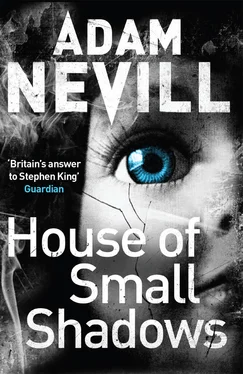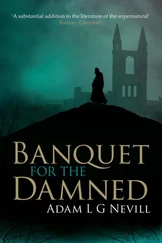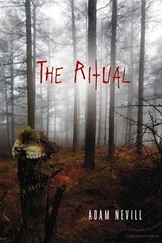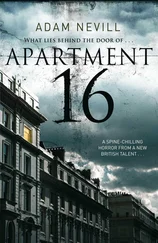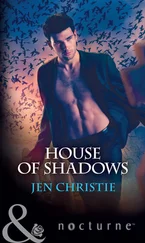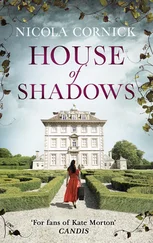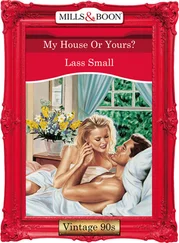A third picture featured a stage again with curtained wings and a backdrop, upon which a motley assortment of small, tatty figures pranced. Their dress was Tudor period, but she could not tell whether the figures were travelling players wearing masks, or marionettes. The indistinct faces of the actors only defined themselves with sharp white eyes and unappealing grins. The audience was depicted crudely as uncouth, ribald, even feral, with great open mouths and wild eyes.
The other two scenes featured a market square filled with children. Ragged children. Urchins. Skeletal creatures with huge eyes. Some supported themselves on crutches. One was pulled along the rutted earth in a wooden cart by an older girl in a tatty dress. The theatre the children were drawn to was in the background, and at a distance, the action upon the stage indistinct.
Catherine moved to open the window to allow more light into the room, and to see the rear garden. The window was another Gothic tripartite, hinged inside the casement.
Against the outside of the leaded panes of glass, a number of flies bumped and nudged with their plump bodies. She had encountered the flies again on her way into the house that morning. It was nearly winter. The summer had been late, but the number of flies was as unseasonal as the warm weather. They had the building surrounded.
At the window she studied the flies’ antics more closely until a flash of white motion from below distracted her. She leant against the casement and peered out.
In the distance, at the far end of the overgrown garden, between a row of untended apple trees, she located the movement. A figure in white, moving back and forth across a short area, as if busy with some task.
She wondered if it was Maude, but then realized the figure was too thin and tall. Maybe a gardener. No, because the grounds had seen no attention in years. The wooden arbour was mostly collapsed and the garden walls were concealed by brambles and ivy. Mounds of vegetation covered several objects she assumed were lawn ornaments or furniture. The edge of a stone sundial, or perhaps a bird table, could be glimpsed through a motionless torrent of tree branches.
The figure that paced back and forth wore brilliant-white clothes. It disappeared for moments and then partially reappeared amongst the dark greenery engulfing the garden, until it seemed to be trapped and tugging at something to free itself. Adjusting her position and screwing up her eyes, she became more sure that the person was male, a tall man.
Momentarily he appeared at a break in the choking foliage and turned in the direction of the house. He’d spotted her at the window. But Catherine could not see the raised face, or even a head, because it was covered.
Once she understood the mask to be the gauzy protective headgear of a bee-keeper, she relaxed. Slowly, the figure raised both arms into the air. The large hands concealed by protective gloves wavered, or possibly even beckoned to her. To come down. No, because the man then pointed at the meadow, and repeated the gesture vigorously, as if indicating that she should go. Leave.
As if caught spying, she withdrew from the window and returned to the gloom. Then felt a sign of recognition should be returned, a friendly wave. Somewhere below in the house, a door slammed shut. And when she looked out again the figure in white had gone, along with the flies.
Ten minutes later, an abrupt knock at the door gave Catherine a start. She turned, touched her hair and patted her skirt down. It must be Maude, sent to collect her. But she really didn’t want to be alone with the housekeeper, who had yet to speak to her or explain the note.
The warning.
‘Yes?’ Her voice was frail. She cleared her throat. ‘Come in.’
A second quick knock. Followed by silence.
Maude wasn’t coming inside, but she had been summoned.
Outside her room, the only light in the passageway dwindled the further it seeped from the pointed arch of the dark stained-glass window at the far end. Further down the corridor the squat and cumbersome silhouette of Maude was some way from her door, but Catherine could not tell which way Maude was facing, or whether the housekeeper was looking at her.
When she established that Maude was in retreat from her door, Catherine followed the woman, accompanied by the clack of her shoes against the bare wooden floorboards, a commotion that rebounded noisily from the panels of the walls. Her sounds were unwanted and intrusive. The rest of the Red House remained silent, as if commemorating the passing of some great personage while she disturbed the mourning like a feckless and unwelcome guest. Maude’s movements issued nothing but a distinctive shuffle. Catherine reminded herself to wear shoes with softer soles.
Below, from the landing that circled the hallway, Edith’s bell pealed.
As with her second visit, Edith’s tweed outfit was practical and less of a period costume, so perhaps the black silk dress had been worn for effect that first day. One of the games Leonard warned her about. But Edith’s hairstyle was again concocted from hairpieces and fashioned into a cottage loaf that appeared too heavy for the tiny head the arrangement engulfed. The face under the vast wig was more haggard than ever, if that were possible. The pointy tension of her glare had slipped as if the woman were medicated. Her eyes were unclear and her mouth open, making her look dopey. And if those were false teeth they were in a poor state of repair.
Edith recovered and summoned a glare to cut short her scrutiny. ‘I trust your room is satisfactory?’
‘Yes. Very nice.’ A museum piece.
‘Good. It was once popular with guests, when the grounds were at their best. But that was some time gone. I wonder who used it last?’ She gazed at Catherine with rheumy eyes as if expecting her guest to supply the answer. Edith turned to Maude. ‘Is it time, dear?’
The housekeeper looked ahead, through Catherine, as if she weren’t of any consequence or even present. And pushed Edith’s chair into the adjoining passage on the second floor. Catherine assumed the puppet theatre would be on the ground floor with the exhibits. ‘You were going to show me your uncle’s marionettes.’
No one answered her.
Between the two second-storey corridors, there must have been a dozen rooms. All were closed and locked away in darkness, doors barely lit by the red skylight above the hall and the one arched window at the far end of each communal passage. Catherine resisted the urge to ask for the lights to be turned on while marvelling how their old eyes could even see in such poor light.
Maude halted the wheelchair outside the second door in the dim corridor, the one beside Edith’s room. Without waiting to be dismissed, Maude shambled off and never once looked at the door she’d parked Edith in front of. Her departure seemed born of anger.
‘Are all your rooms furnished?’ Catherine asked, unable to stop herself estimating the value of the Red House’s contents.
‘Of course. Everything still has its place.’
‘I think you might be surprised at the value… of your things. The furniture and the ornaments.’
‘Is it not enough that we must part with my uncle’s masterpieces? Yet you want to sell every stick of furniture out from under us?’
‘No, I just meant… I was trying to say—’
‘Well don’t. The more time I spend in your company, the more I am certain you have very little to say that will be of any use here.’
At first Catherine stiffened with shock at the outburst, then warmed with anger and squeezed her hands together. Why must it be like this? There was never a good time to speak, to venture an opinion. And being in the house had already begun to feel horribly prescribed, like a script was being followed and she didn’t know her lines.
Читать дальше
